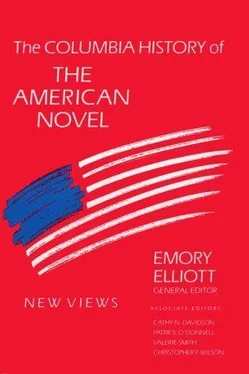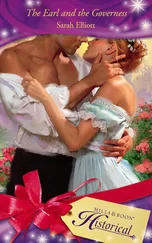Introduction [1] The Columbia History of the American Novel Emory Elliott, General Editor Associate Editors Cathy N. Davidson Patrick O'Donnell Valerie Smith Christopher P. Wilson Columbia University Press New York Columbia University Press New York Oxford Copyright © 1991 Columbia University Press All rights reserved Library of Congress Cataloging-in-Publication Data The Columbia history of the American novel / Emory Elliott , general editor; associate editors, Cathy N. Davidson ...[et al.]. p. cm. Includes bibliographical references and index. ISBN 0-231-07360-7 (alk. paper) 1. American fiction -- History and criticism. I. Elliott, Emory, 1942 -- II. Davidson, Cathy N., 1949 -- PS371.C7 1991 813.009 -- dc20 91-21598 CIP 1995 Casebound editions of Columbia University Press books are Smyth-sewn and printed on permanent and durable acid-free paper. Printed in the United States of America c 10 9 8 7 6 5 4 3 2 1
" TheNovel"; "The American Novel": there was a time not long ago when most literary critics and scholars were confident that they had a solid understanding of these terms and had a fair idea of what a book devoted to the "American Novel" would contain. After an introduction that would acknowledge the debt American novelists owe to European predecessors such as Cervantes, Defoe, Swift, Richardson, and Fielding (some might include Homer, Chaucer, Spenser, and Milton), the chapters would follow a chronology beginning with some late eighteenth-century fictions by fledgling American imitators of the English prose giants.
In a chapter entitled "At the Beginning," Alexander Cowie opened his The Rise of the American Novel (1951) in this way: "For the dearth of good American literature during the first 150 or 200 years of the white history of the country, apology is needed less than explanation. A new nation, like a new-born baby, requires time before its special characteristics become discernible." Without even bothering to define the "novel" since he assumed everyone knew what that meant, Cowie quotes Julian Hawthorne's definition of "an American novel": "a novel treating of persons, places, and ideas from an American point of view." Presumably everyone then knew what "American" meant as well.
In our own time, scholars, critics, and teachers of the literature of the United States have come to recognize that narrative — storytelling — which forms an essential element of the "novel," began — ix- in every corner of the world at a very early point in the development of civilizations. On every continent, including the two to be named "the Americas," stories that began as oral narratives in families and tribes became folk tales, songs, chants, and eventually complex national and regional oral epics. Before the invention of alphabets, stories about the adventures of hunting and war were inscribed as drawings on walls and inside caves and may still be viewed today in the Southwestern United States, Central China, and elsewhere. As a reminder of this long literary history, the contemporary Native American novelist N. Scott Momaday includes in his novella The Way to Rainy Mountain (1969) a sketch of a hunter in action drawn by his father.
With the coming of writing, the problem of defining the genres of narratives became even more complex. Are the sacred scriptures of ancient people, such as the Bible and the Koran, histories exactly? Did human imagination play a role in their creations? If so, are they to some degree or in part fictional narratives? By the time Cervantes composed Don Quixote , often considered to be the first true novel, people had been writing fictional or semifictional stories with plots, characters, settings, suspense, humor, irony, narrative twists, and surprise endings for centuries. The point at which we can say "there is the first novel in English" is no longer a simple matter.
Defining the novel as a genre even in the eighteenth or nineteenth centuries is difficult because, from the first, experimentation and innovation prevailed: the epistolary form of Richardson, the journal narrative of Defoe, the fantastical tales of Swift, the picaresques of Fielding, the tales of seduction of Susanna Rowson, the domestic intrigues of Austen, the gothics of Mary Shelley and the Brontës. Then, what are we to make of texts of the twentieth century called novels by their authors but that often consist of many elements of writing that would have baffled earlier novel readers, such as fragments of poems, mixed with letters, song lyrics, and pieces of prose narrative that do not appear to connect in any sequential or logical way with other prose in the text? Is a work a novel if the author intentionally refuses to provide a plot or an ending? Who decides these things? The authors, critics, readers, the National Book Awards Committee, English professors? -x-
Certainly, when writers themselves attempt to "advance the form," in John Barth's words, of the novel through experimentation, they have a good idea of what the form of the novel is that they have inherited; it must be for them, at least, a known entity in order for them to change it. But change has always been inherent to the novel, and the literary record is littered with critics who have roasted certain novelists for breaking the rules only to be burned themselves with the discovery that a literary genius was revising the conventions.
For the sake of this literary history, we might define the novel as a text usually of substantial length that is normally written in prose and presents a narrative of events involving experiences of characters who are representative of human agents. It may present events in a fairly linear manner as though cause leads to effect, or it may interrupt time sequences, demanding of readers careful attention to fragmented episodes. The events of the narrative may lead to a conclusion or may be left suspended in seeming inconclusiveness. Most novels depict situations that represent human experiences that readers find believable, but some others may present absurd, tangled situations that bear little apparent resemblance to recognizable human experiences. While some novels allow readers to focus upon action and characters, others require the reader's close attention to nuances of language in order to formulate an interpretation. This definition probably does not account for every text now accepted as a novel — and will account for fewer with the appearance of every new experimental work — but it is broad enough to include most texts called "novels" at the moment.
Some would demand that we not only try to define the novel but that we also provide criteria for distinguishing "good" or even "great" novels from "poor" ones. Which are works of art and which are artistic failures or make no pretense at art? Not long ago, the editor of a book like ours would proclaim that we might recognize a great novel by comparing it to the late works of Henry James or those of Faulkner's great phase in the 1930s or Moby-Dick . The criteria for the greatness would have been the intricate but orderly structure, the details of characterization, the profundity of themes, the complexity of the imagery, symbolism, and allusions, and perhaps the power of the setting to evoke particular places, eras, or subtleties of human -xi- speech. The persistence of such prescriptive judgments accounts for why great innovators such as Melville or Hurston were initially misjudged.
In casting other novels into the dustbin of "poor" or "trash" novels, critics could simply point to their lack of these refinements and/or their blatant use of sentimentality or gothic horror or to their representations of human situations and conditions of life deemed unfitting for the dominant reading public. Such outcasts were rejected under several labels, such as "popular fiction," "dime novels," "pulp fiction," "agitprop," "muckraking," "women's stories," and "sentimental romances." In short, they were condemned for being "not serious" and "too simple." Most critics felt that men wrote the best fiction because they had the richest experiences to draw upon and because they possessed the complexity of mind to create challenging works of philosophical and psychological complexity. Regretfully, too, many works written by members of racial and ethnic minority groups, especially about experiences within those groups, were slighted and ignored because the subject matter was viewed as marginal and/or the literary techniques, often incorporating elements from non-Anglo cultural traditions, were misunderstood.
Читать дальше











